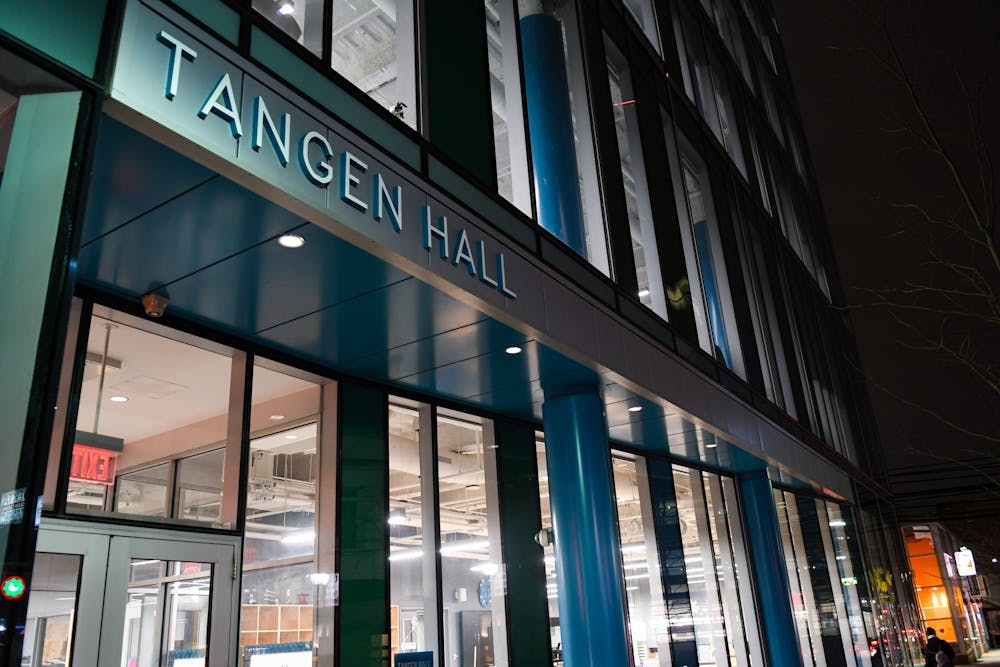Startups are exciting.
Businesses founded by Penn students (or recent dropouts) have raked in millions of investment dollars over the past few years from high profile investors like a16z, Founders Fund, Contrary, and 776.
Venture capital is the best performing asset class of the last decade. The value of venture investments has increased every year for the past 15 years to $333B in 2021. Ten years ago, it was cool to be an angel investor, another name for an investor who invests their own money. Now everyone wants to have their own venture capital fund, or a business that invests capital on behalf of limited partners. The venture capital industry is a rapidly changing environment and Penn will play a larger role in its future.
Venture capital is in the midst of a great transition from the world of business to business (B2B) and consumer software as a service (SaaS) companies to the more gatekept world of artificial intelligence and hard tech.
That’s a lot of buzzwords. But we are really living through an anomaly. Venture and startups have been the best get-rich scheme in human history. Have an idea? Good at selling yourself? You and a computer could raise funds and build a billion dollar company with the help of some venture capitalists and a great team.
That's because software is inherently accessible. Google and Youtube allow you to learn anything you need at home with Wi-Fi and a computer. But those days are over. It has been 20 years since the infrastructure for these advancements was built and the surface area for building a startup in this extraordinarily accessible space is shrinking. It’s the beginning of the end for SaaS and traditional software products.
A great example is the proliferation of nearly identical apps. Sidechat, for example, is a copy of Buzz (now Fizz). Fizz, although different in that it requires people to be students to join communities, is very similar to Yik Yak. Dive Chat, which recently launched on the Penn campus is an improvement on GroupMe undoubtedly, but a relatively incremental advancement compared to the original genesis of group-based, mobile communication.
As the opportunities in traditional software shrink, robotics and AI are just beginning to take off. AI, because the internet was not as easily harvested, categorized, and universal as it is today. It’s now possible to measure nearly everything that happens to people all of the time. And with that data we can create AI that replicates human decision making and creativity.
MORE FROM SEATON:
Brett Seaton | Is Penn about to be caught flat-footed by ChatGPT?
Robotics were not as accessible previously — mostly because of Moore's law and lack of infrastructure for widespread enterprise adoption of robotics. Tesla has demonstrated significant leadership here in its gigafactories — indicating that the mainstream use of robotics is only years away.
Robotics and AI are much more gatekept industries. The amount of data you need to access in order to build an industry-specific AI algorithm is mind-boggling. A kid with a laptop can't get access to that — only universities, enormous tech companies, and other societally entrenched institutions can.
The amount of hardware, testing, and enterprise exposure necessary for robotics entrepreneurship is similarly daunting. Shinkei Systems, a Penn robotics company started by Wharton graduate Saif Khawaja, has been in and out of accelerators (startup programs) for years. They have received the support of YCombinator and Penn’s many resources. Shinkei still hasn’t launched with customers.
Khawaja is brilliant and has assembled a well-educated team of robotics experts — and he is still having these difficulties. The industry is very difficult to break into and requires the pedigree and access to resources that Penn and YCombinator have opened to Khawaja and the Shinkei team.
For Penn students, the increasingly difficult to access entrepreneurship ecosystem means that we have an even greater responsibility to take advantage of our opportunity. We are all in a unique position to leverage Penn’s reputation and resources to succeed — and Penn students have an even stronger competitive advantage now that more exclusive industries are on the rise.
Get involved with startups in and around Penn. Hundreds of students are working on side projects or startups that could blossom into a great company with enough effort and luck. Ask around about the data and hardware support that Penn provides to entrepreneurs — they are a powerful differentiator in today’s venture landscape.
If you’re interested in academic opportunities in these areas — check out the new master's degree program in robotics or machine learning classes like CIS 5200. And, if you are looking to get into startups in a more traditional SaaS space, make sure it’s in an industry with remaining friction that is so specialized for some reason that the collective knowledge of humanity over the past 20 years have been unable to build it.
Penn, as a globally renowned institution, will have access to the hardware, testing, enterprise exposure, and data necessary to power entrepreneurship for the future of the venture ecosystem. Your access to industry-changing data and technology is unparalleled. How you choose to deploy those resources is critical, so get to work.

BRETT SEATON is a Wharton sophomore studying finance from Manhattan, Kan. His email is bseaton@wharton.upenn.edu.









